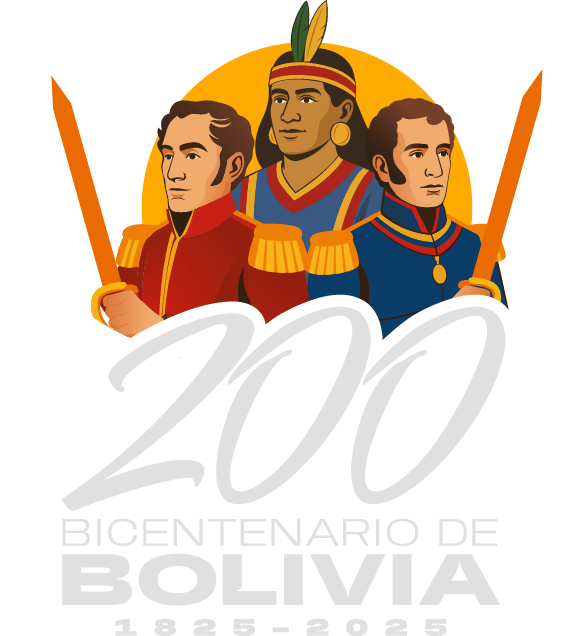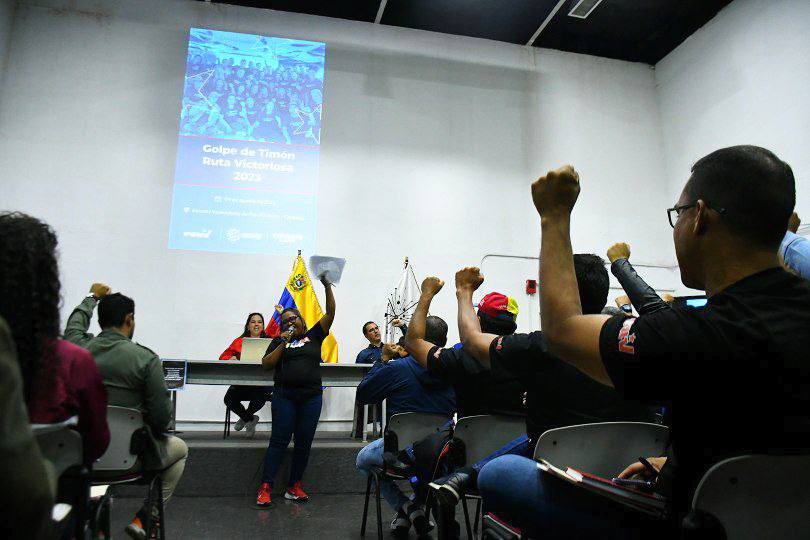Caracas, August 9, 2023 (Press Mincomunas) – Authorities of the People’s Power Ministry for the Communes and Social Movements chaired this Wednesday the National Meeting Victory Route of the Coup de Timon, where they met with territorial actors in the communal sphere to advance in joint plans and strategies, to accelerate Commander Hugo Chavez’s order to give birth to Socialism through the communal organization.
From the Venezuelan School of Planning, in Caracas, the Minister for Communes and Social Movements, Jorge Arreaza, raised among the conclusions the proposal to create a great school for the training of public servants in communal matters.
He mentioned that from abroad, some philosophers consider the Venezuelan Commune as a civilizing alternative: “Let us see the tremendous responsibility we have, it is gigantic” before the rise of artificial intelligence, combinations between the humanoid and the artificial, “for us, it is important for humanity to be human, as Alí Primera said, that is our challenge, for humanity to be human and to be supportive, loving and fair, it is only possible by organizing itself at the margin of corporate and transnational powers”.
Furthermore, he exhorted to make the maximum effort to raise the unitary conscience and work to join wills, to make Chavez’s project of the construction of a communal society, the communalization of Venezuela, a reality.
In his exposition, he presented the challenge of demonstrating in concrete reality that the communal and social-economic alternative way, including cooperativism, “is viable, more efficient and better”, because it redistributes the surpluses and does not accumulate them in a single pocket or a single family.
Arreaza indicated that it is important to “elevate ourselves from the abstract to the concrete”, as Comandante Chavez reiterated quoting Marx. Furthermore, he stated that it is necessary to define the roles and responsibilities of each organizational structure, including the partisan ones, to reach the goals. He also advocated for systematizing the government management experiences of the People’s Power, socializing and emulating them.
Progress in communalization
Cesar Carrero, Vice Minister for Communal and Social Organization and Participation, presented the advances in the election processes for the renewal of the Communal Councils and registration terms to formalize the regularization. In this sense, he specified that they have counted a little more than 22,000 elections during a whole year, while about 17,000 renewed Communal Councils have been registered. They have held meetings to design plans to improve both processes (renewal and registration) and to settle the existing debt.
Likewise, Hernan Vargas, Vice Minister of Communal Economy, spoke about the creation of the Communal Economic Circuits in territories with productive and organizational traditions in certain areas (coffee, cocoa, corn), which following the orientation of the Mexican philosopher Enrique Dussel, were conceived based on a communal economic policy that responds to the life of the people, democratically approved by the communities and is feasible through communal management. He added that President Nicolas Maduro also states that it must be an economy for life, which impacts the material living conditions of the people and responds to concrete conditions in the territory.
The Vice-Minister of Social Movements, Fernando Rodriguez, pointed out that his office was recently created, and “we have the great challenge of adding all the diversity so that the banners of the struggles of the popular organizations are involved, integrated and reflected in all the instances of self-government”. He insisted that they have the great challenge that the Communal Councils and the popular organizations raise the same banners of the struggle for anti-imperialism, independence, sovereignty, and the Simon Bolivar National Project – Plan of the Homeland. He added that they are working on a registry of social movements in the country.
On her part, Lidice Altuve, Vice-Minister of the Training System for Communes and Social Movements, who has been in office for a little more than a month, began by specifying that training is transversal and the ministry of assignment designs and exercises leadership in training policies for Communes and Social Movements. He proposed to resize the training policy in communal and Popular Power matters, with the challenge of building a training system in the competence area. “The Ministry’s strategic plan has three axes: radical democracy, communal economy for life, and the system of communal good governance and social movements. The Concrete Action Agenda (ACA) in the training area must contribute to these three strategic axes of the plan,” he pointed out.
In her participation, Gabriela Peña, in charge of the Secretariat of the Congress of the New Epoch, affirmed that the meeting seeks to continue adding the broad majority to the new stage of the Bolivarian Revolution. “We come to review the Congress of the New Epoch process and to unify ourselves to design the programmatic route towards the Coup de Timon”. He exhorted, “not to underestimate the formation because we have to forge a collective revolutionary conscience.”
During the activity, they formed working tables to debate by thematic areas and offered their conclusions at the end of the meeting.



